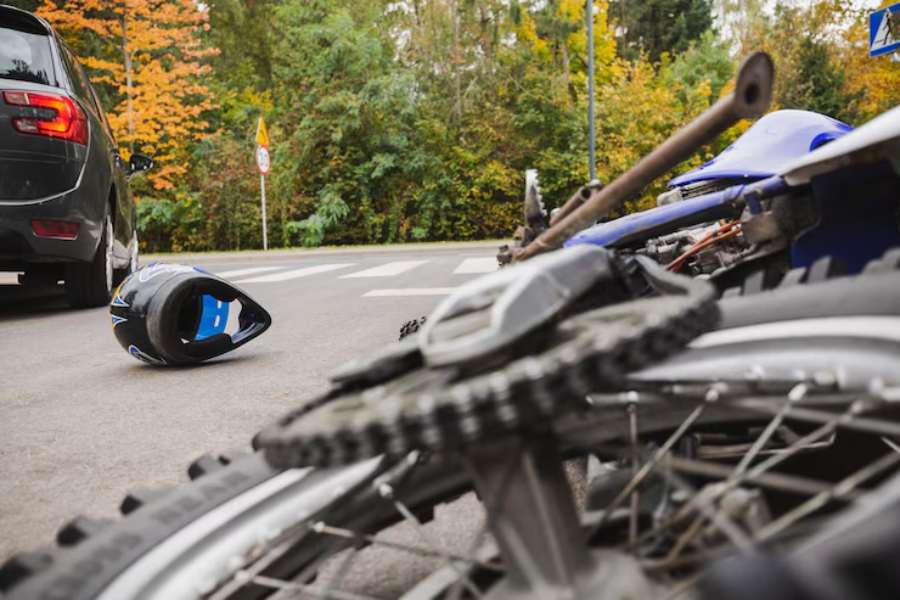Few things jolt you into reality like a motorcycle crash. One second you are riding free, the next you are picking up the pieces, both physically and mentally. At that moment, every decision matters. Taking calm, deliberate steps right after the collision can protect your safety, your health, and your legal rights. You don’t have to figure it all out alone. Here are essential steps to guide you through those critical first hours.
Move to safety, then check for injuries
If you can, roll your bike off the road or to the shoulder. Kill the engine and switch on hazard lights. Take a moment to assess yourself and slowly wiggle your fingers and toes, and stretch gently to spot hidden pain. If the pain is sharp or you feel dizzy, stay still and wait for medics, as rushing could worsen a spinal or head injury. Once safe, keep warm and still until help arrives or you are sure it’s okay to move.
Call 911, capture the scene, and record details
Dial 911 immediately, give the dispatcher your exact location, and describe any injuries. While you wait, pull out your phone and take wide shots of vehicle positions, skid marks, nearby traffic signals, and road surfaces. Get close-ups of damage, gouges, and any debris.
If possible, record a quick voice memo describing what happened; time stamps help verify timelines. Note weather and light conditions as well, and reach out to a Raleigh motorcycle accident lawyer to learn how to protect evidence and your rights from the start.
Exchange details
After officers arrive and clear the scene, exchange names, phone numbers, driver’s license numbers, insurance details, and vehicle descriptions with the other party. Use your phone to scan the driver’s licenses and insurance cards, then back up those images securely.
In addition, avoid admitting fault or apologizing as it can be misconstrued later. If witnesses step forward, ask for their contact information. Their accounts can prove vital if fault is disputed.
Get the police report
Ask the responding officer where to request a copy of the official crash report. This document lists basic facts, witness statements, and any tickets issued. It’s a critical piece of evidence for insurers and courts alike. Order it as soon as you can, either online or in person, and keep both digital and printed copies. Email one to yourself so it has a secure timestamp. Make sure you review it against your own notes and photos to flag any errors.
Get checked by a medical professional
Adrenaline hides pain. Even if you feel fine, see a doctor within 24 hours. Share every ache and twinge, no matter how minor. Follow through on tests, scans, treatments, and any therapy sessions, and save every record, bill, prescription, and therapy note. A clear medical trail ties your injuries directly to the crash. Schedule any follow-up with your primary care physician or specialist to track recovery.
Notify your insurer, then consult your attorney
Call your insurance company without delay. Stick to basic facts: date, time, location, and police report number. Don’t guess or assign blame. You should also schedule a meeting with your attorney. A skilled lawyer handles tough negotiations, files critical paperwork, and helps you meet all legal deadlines. Ask about important deadlines, like North Carolina’s three-year statute of limitations. Missing that window can bar your claim.
Endnote
Write down key dates and reminders on your phone or calendar. Share updates with your lawyer as your recovery progresses. The more organized you stay, the smoother the process will be. Acting swiftly and thoughtfully not only protects your health but also lays the groundwork for fair compensation and a faster recovery.


